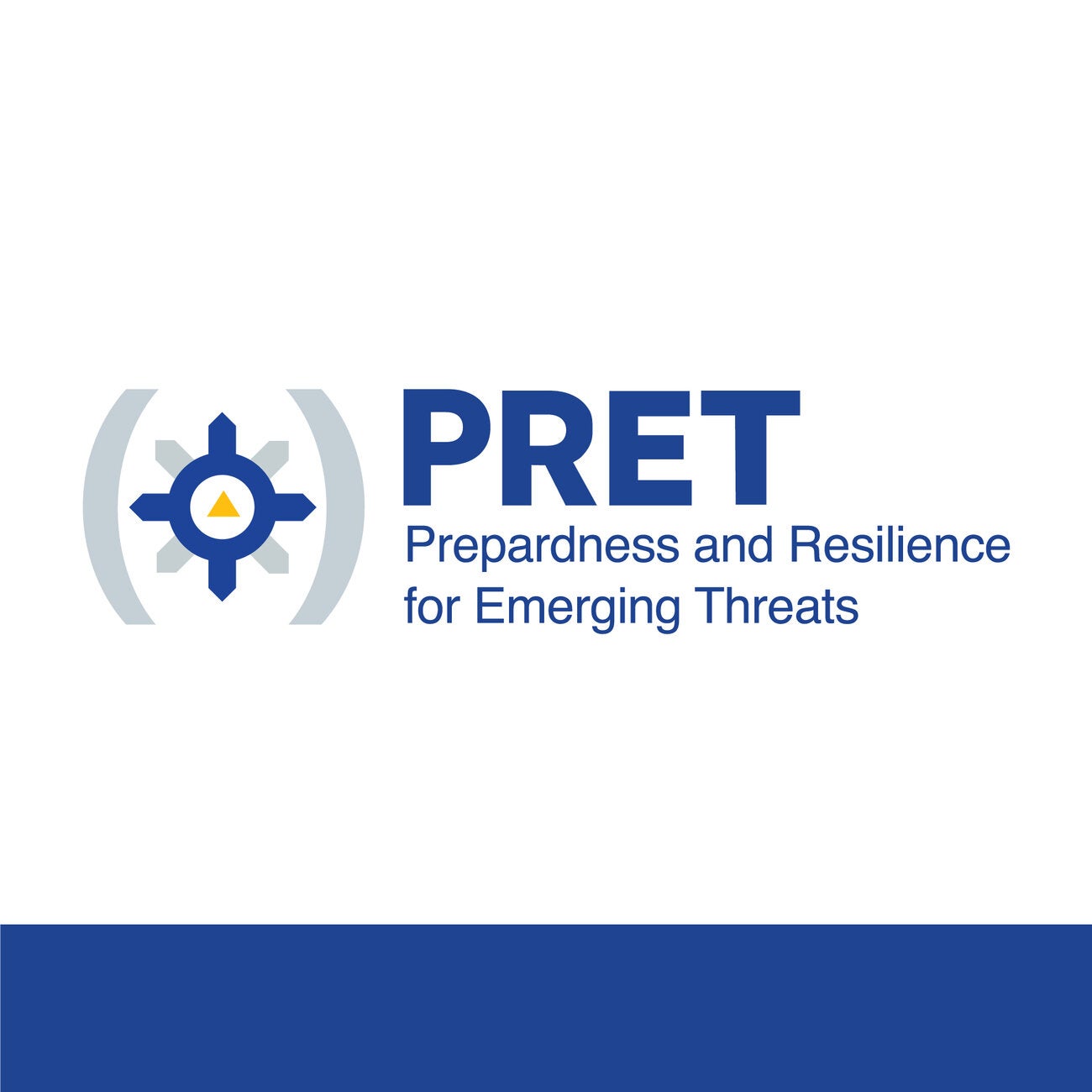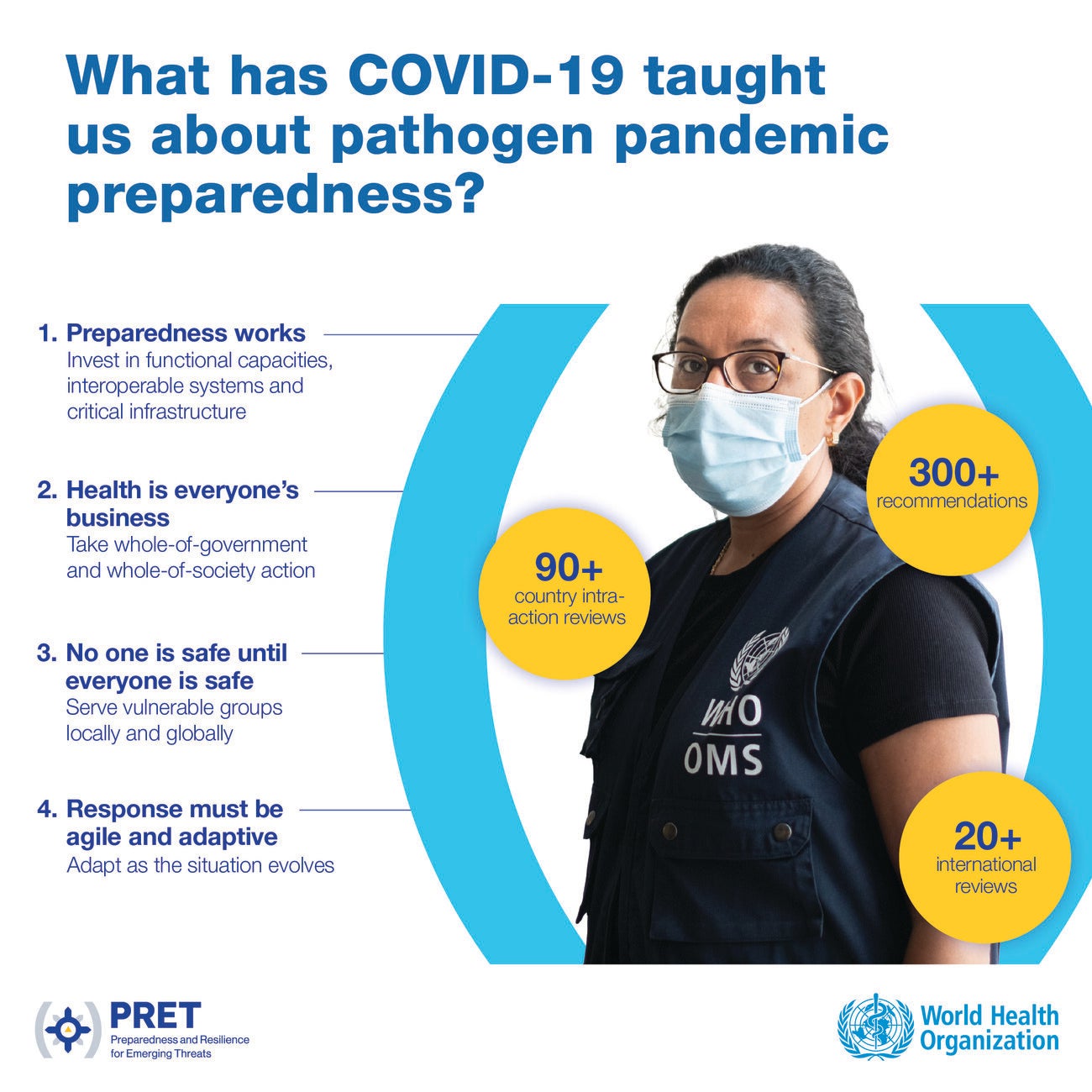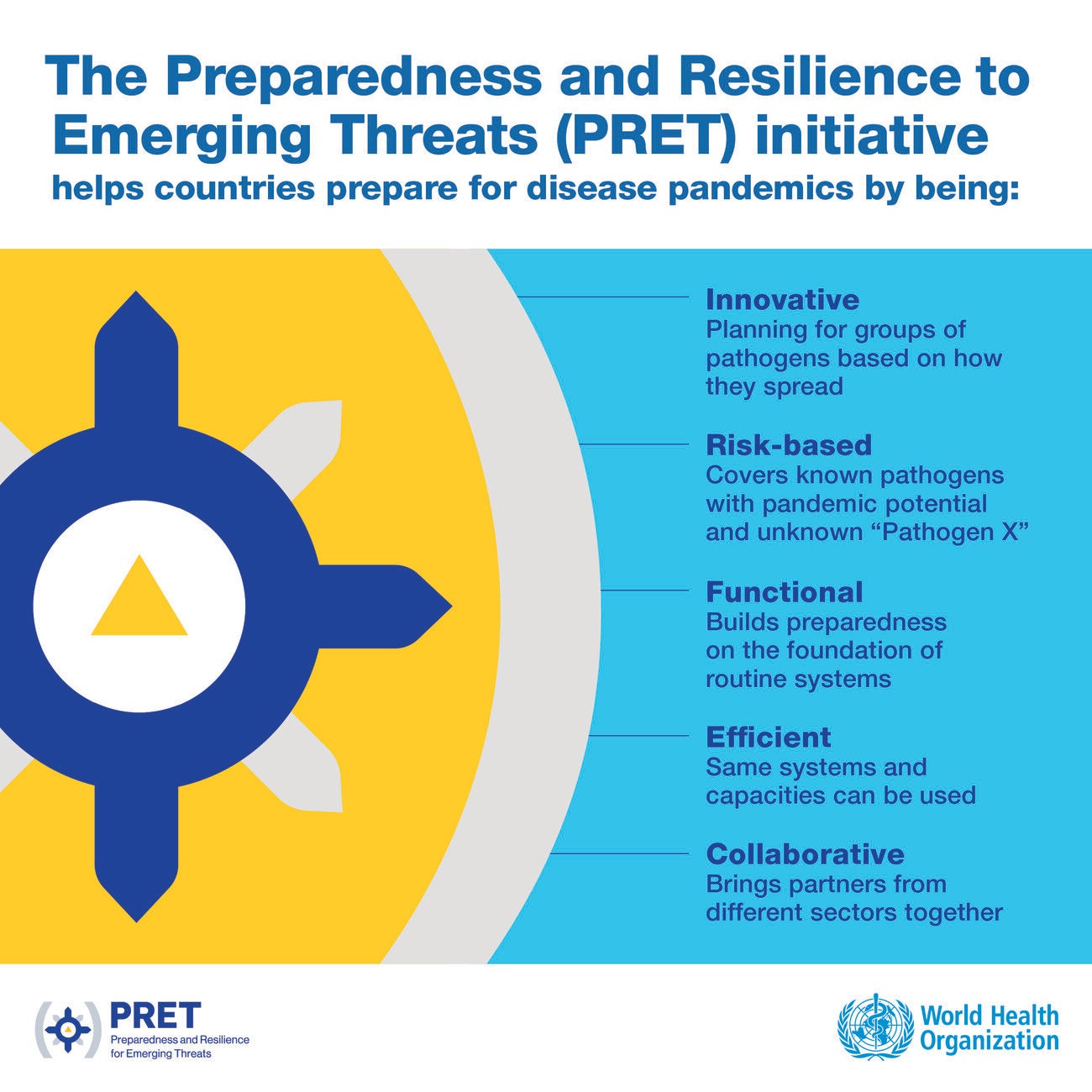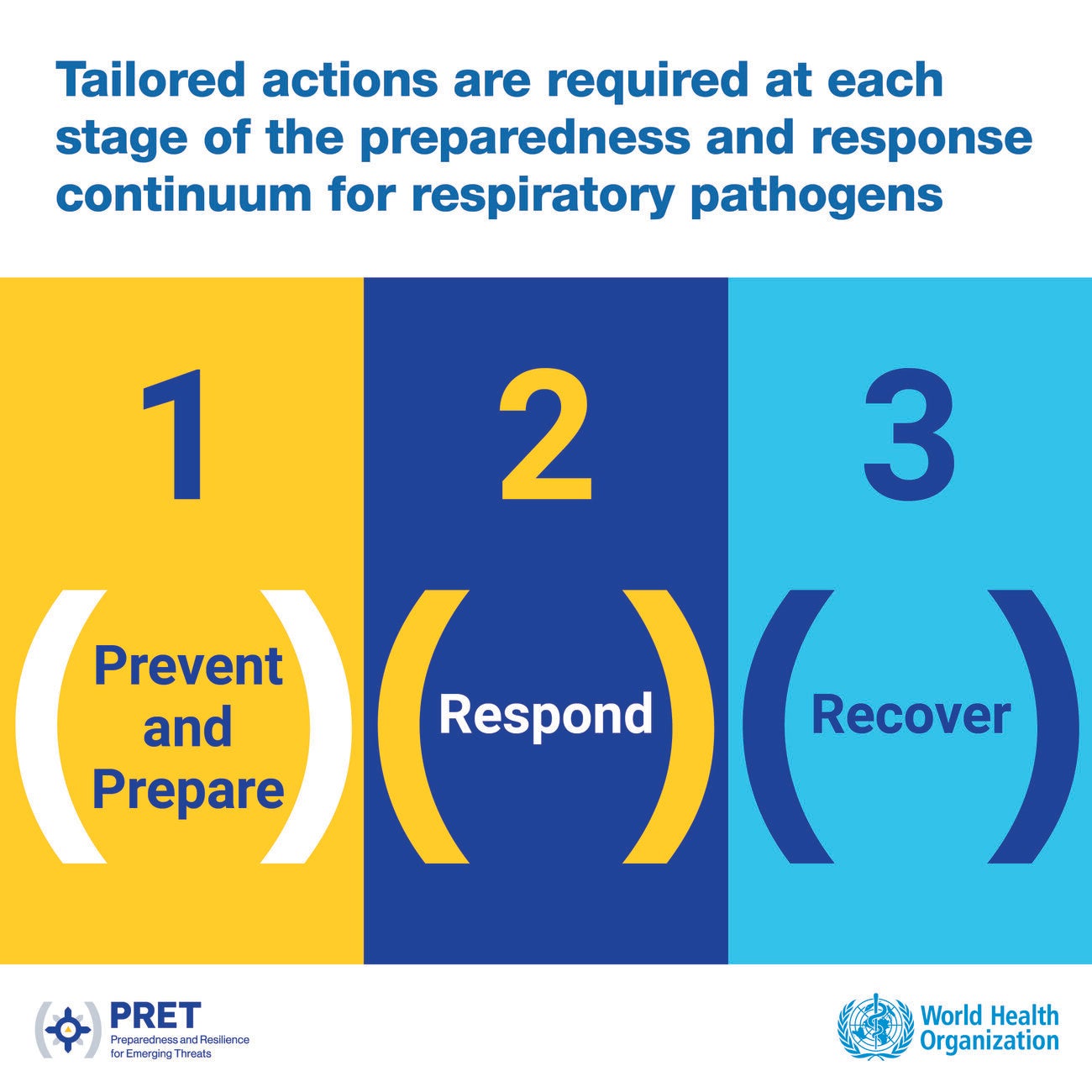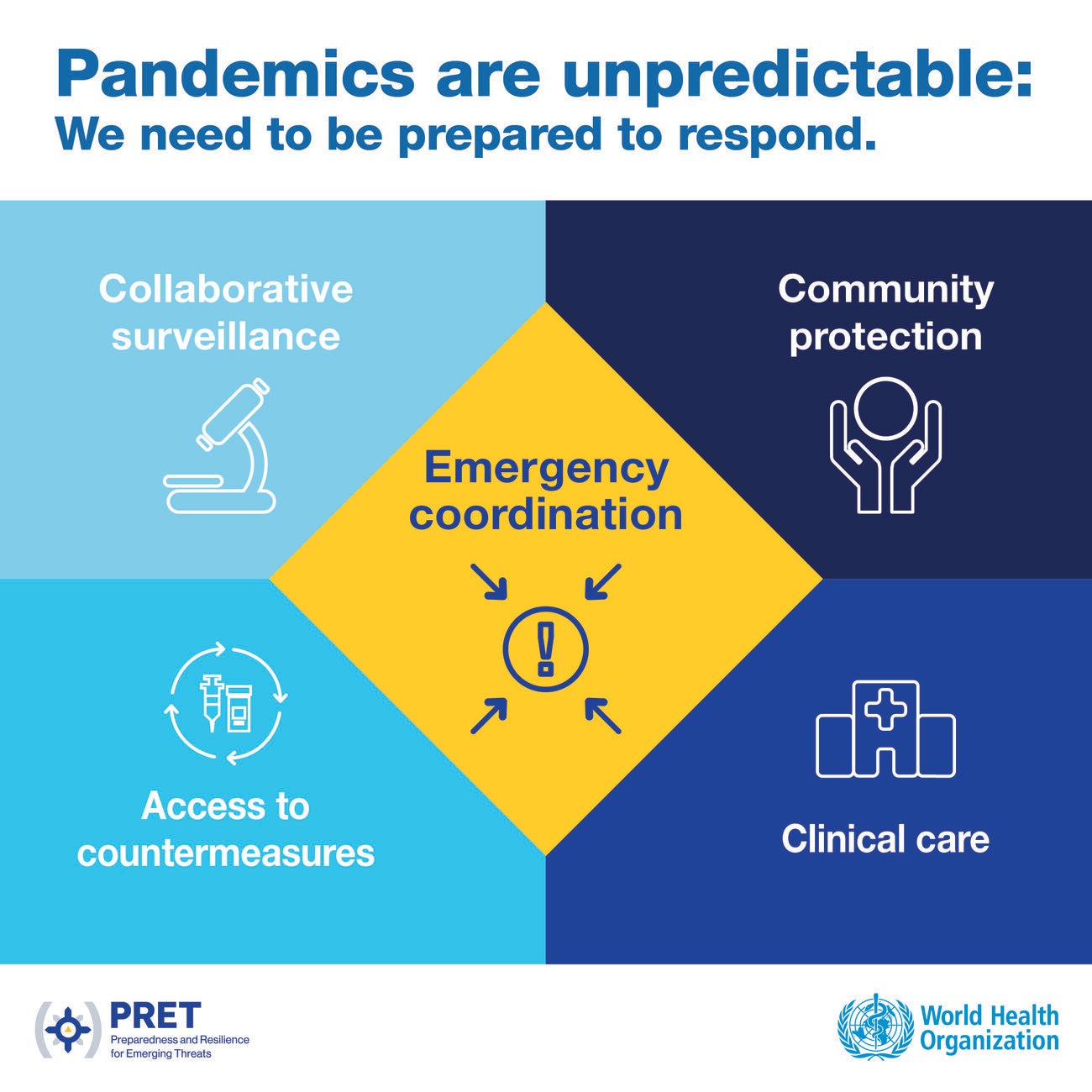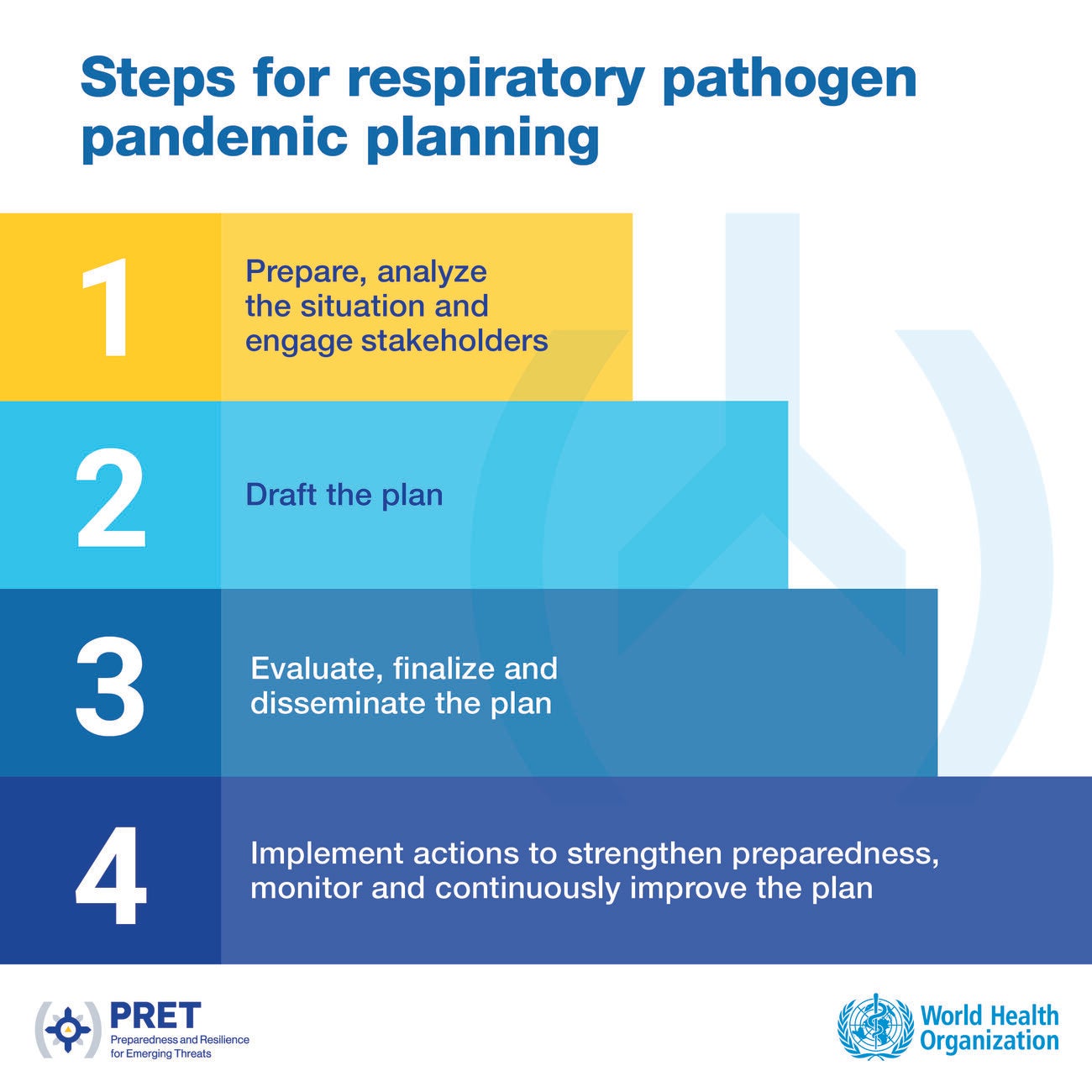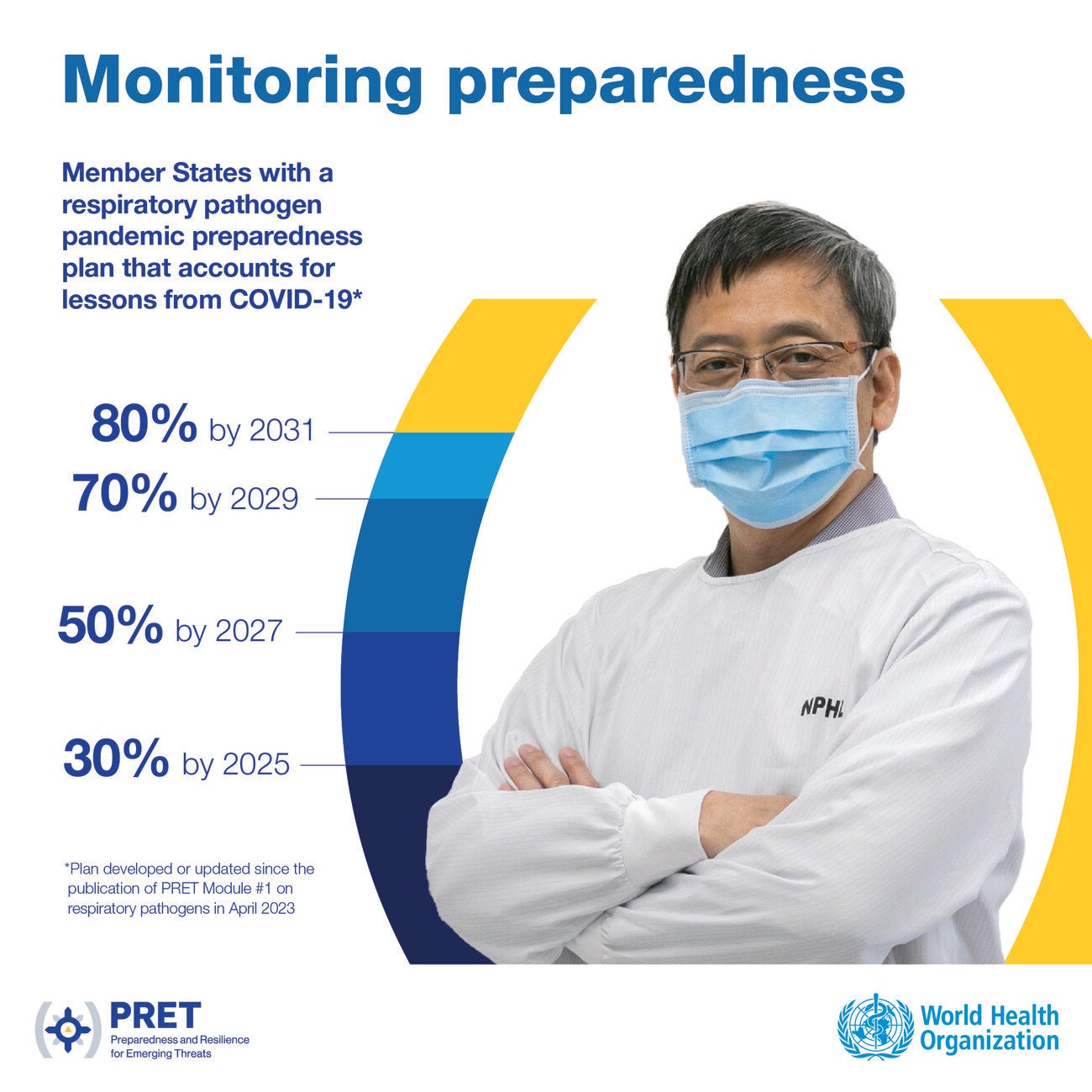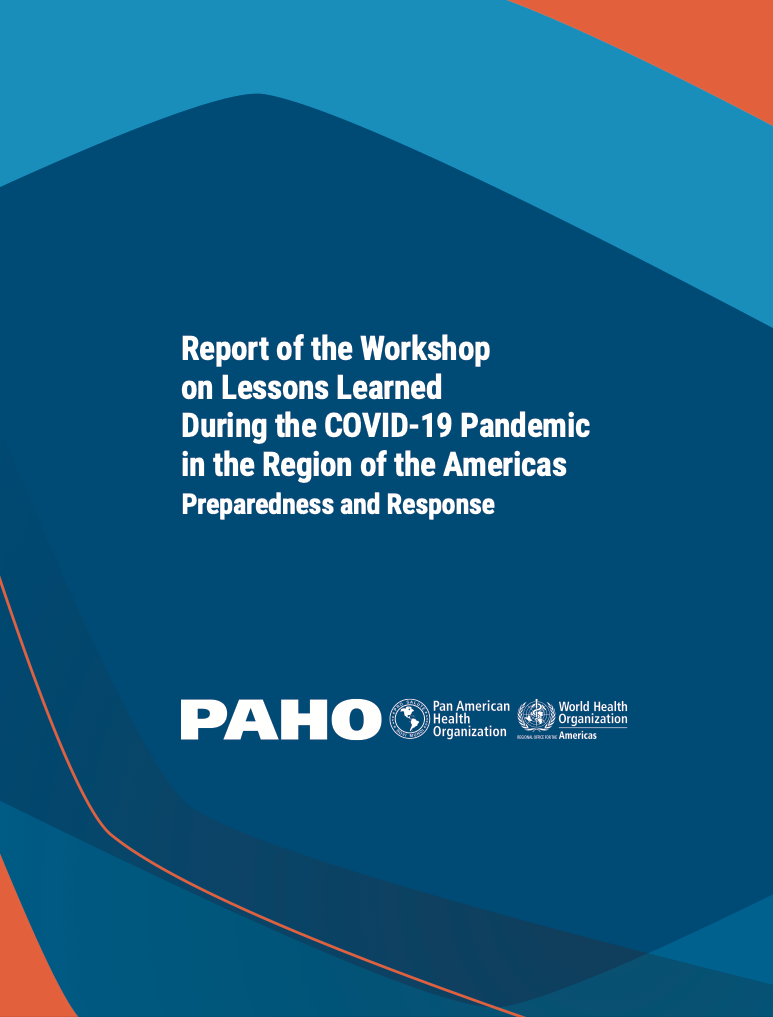WHO resolutions WHO58.5 and WHO74.7 commit to supporting Member States in strengthening pandemic preparedness planning for respiratory pathogens in alignment with the International Health Regulations 2005 (IHR).
Planning for public health emergencies must ensure that the capabilities developed during prior emergencies are maintained, and embedded to be rapidly put into play whenever a new pathogen emerges.
Download the Strengthening Pandemic Preparedness Planning, Policy Brief 2022
Pandemic Preparedness Plans by Subregion and Country
Although the global and regional situation is dynamic, PAHO recognizes the efforts made by countries to develop preparedness and response plans for respiratory viruses with epidemic and pandemic potential.
To ensure ready access to national preparedness and response plans for future emergencies; and to facilitate collaborative work between the Ministries of Health, agencies, organizations, universities, and the community, among others; PAHO has consolidated publicly available national plans related to respiratory viruses.
Antigua & Barbuda
The Bahamas
Bermuda
Cuba
Dominica
Dominican Republic
Guyana
Grenada
Haiti
Jamaica
Saint Kitts and Nevis
Saint Lucia
Suriname
St. Vincent and the Grenadines
Trinidad and Tobago
Belize
Costa Rica
El Salvador
Guatemala
Honduras
Nicaragua
Panama
Bolivia
Colombia
Ecuador
Peru
Venezuela
Disclaimer: The pandemic preparedness plans shared here are owned by the competent national health authorities. The process of developing, testing and updating the aforementioned plans is the exclusive responsibility of each Member State. PAHO provides technical guidance in this process when requested by the Member States. PAHO does not offer any guarantee or assume any legal responsibility for the accuracy and/or veracity of the information contained in the materials compiled on this web page. PAHO will not assume any responsibility for claims arising from or derived from the use of the information contained in this web page.
The Preparedness and Resilience for Emerging Threats initiative in The Americas
The Preparedness and Resilience for Emerging Threats (PRET) initiative takes an innovative, shared-learning approach to improve preparedness for future pandemics:
Recognize the use of common systems, capabilities, knowledge, and tools for a group of pathogens based on their mode of transmission.
Maximize available resources, builds technical coherence, increases coordination, and reduces duplication of efforts.
Align with broader health strategies, including the IHR (2005) core capacity implementation.
PRET Module 1: Planning for respiratory pathogen pandemics.
Through technical consultations with countries and partners, WHO has led the development of PRET Module 1 based on pandemic lessons learned and guidance focused on respiratory pathogens.
Respiratory-transmitted pathogens pose a greater pandemic risk due to their difficult control and rapid global spread. Module 1 emphasizes the need for a coherent, multisectoral and collective action approach, contextualizing 12 of the 15 core capacities of the IHR (2005) in five components.
The WHO recommends that countries review and update their planning processes to prepare and ensure the necessary capacities for a next respiratory pandemic.
*Draft Version
Countries in the Americas Analyze how to Strengthen their Preparedness, Response, and Resilience to Future Health Emergencies
Public health authorities from Argentina, Bolivia, Colombia, Guatemala, Mexico, and Saint Lucia participated in the regional workshop on Preparedness and Resilience against Emerging Threats (PRET), held in Bogotá from October 10 to 12 to contribute to strengthening the capacity for preparedness, and response, and ensuring the resilience of national health systems in the face of emergencies caused by respiratory pathogens.
Resources
Tres recomendaciones para comunicación de riesgo
Tres claves de vigilancia para fortalecer la preparación a emergencias
Cuatro oportunidades claves para fortalecer la preparación en emergencias



